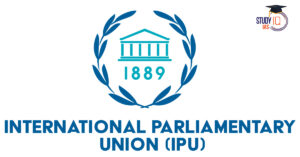Table of Contents
The Bilateral Investment Treaty (BIT) between India and the United Arab Emirates (UAE) came into effect on August 31, 2024. This treaty replaces the previous Bilateral Investment Promotion and Protection Agreement (BIPPA), which lapsed on September 12, 2024.
| Fact |
| UAE is a key foreign investor for India which is responsible for 3% of total Foreign Direct Investment (FDI) and investments totaling $19 billion from 2000 to 2024. |
Context and Background
- India’s BIT landscape has faced challenges since the adoption of the model BIT in 2016, leading to a significant reduction in bilateral treaties:
- 68 out of 74 BITs have been terminated since 2015.
- The difficulty in renegotiating terms under the model BIT has contributed to a decline in FDI.
- From April 2023 to September 2024, FDI equity inflows dropped by 24%, while total FDI, including reinvested earnings, contracted by 15.5%.
- Government Aspirations: In light of its goal to achieve a $5 trillion economy, the Indian government has promised renewed efforts to strengthen economic ties with trade partners.
- The India-UAE BIT is a crucial step toward fulfilling this commitment.
Key Provisions of the India-UAE BIT
Amendments to Local Remedies Clause:
- One notable change in the BIT is the adjustment of the local remedies requirement:
- Under the model BIT, investors were required to exhaust local remedies for five years before seeking international arbitration.
- This period has been reduced to three years in the India-UAE BIT (Article 17.1), potentially easing negotiations with other countries, particularly in ongoing discussions with the UK regarding a free trade agreement.
Prohibition on Third-Party Funding
- The treaty includes a rule that prevents investors from using third-party funding to pay for dispute cases.
- In the past, third-party funding was discouraged in countries like India, as it went against public policy based on old colonial principles.
- However, these restrictions have eased over time to reflect today’s economic needs.
- Example: In 2018, the Supreme Court in Bar Council of India v AK Balaji ruled that financial help from an outside party in a dispute is not automatically against public policy.
- A February 2024 expert report from the Ministry of Law and Justice also recommended adopting third-party funding in arbitration. However, the treaty’s outright prohibition contrasts with this emerging domestic trend.
Inclusion of Portfolio Investments
- The BIT expands its scope by including portfolio investments (Article 1.4), which were excluded from the model BIT:
- This allows investors with financial holdings to utilise the BIT’s investor-state dispute settlement mechanism (ISDS) for disputes related to financial instruments.
- Concerns have been raised that this could increase India’s exposure to disputes over financial instruments that do not significantly contribute to economic development.
Future Implications
- The effectiveness of the treaty in balancing foreign investment promotion and state regulatory rights remains to be seen.
- Ongoing discussions regarding proposed Free Trade Agreements (FTAs) with countries such as the UK and EU are at advanced stages, alongside active negotiations with other nations like Australia and Saudi Arabia.
- Given India’s current ratings in contract enforcement and geopolitical challenges, these developments should be viewed positively as steps toward establishing a robust cross-border economic ecosystem.
- The India-UAE BIT could serve as a template for future treaties aimed at fostering foreign investment while ensuring adequate protections for both investors and host states.


 SAMARTH Udyog Bharat 4.0: Transforming I...
SAMARTH Udyog Bharat 4.0: Transforming I...
 BHIM 3.0 Launched by NPCI: Key Features,...
BHIM 3.0 Launched by NPCI: Key Features,...
 150th Summit of Inter-Parliamentary Unio...
150th Summit of Inter-Parliamentary Unio...





















